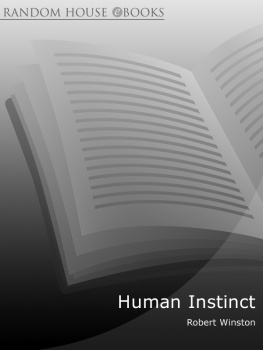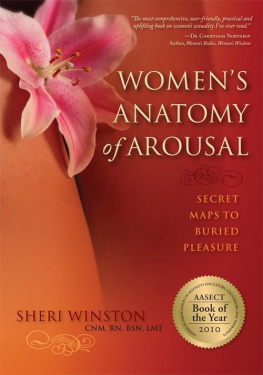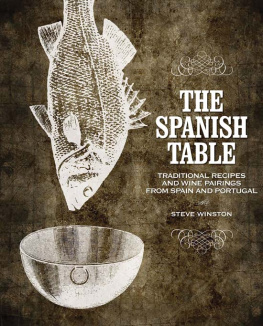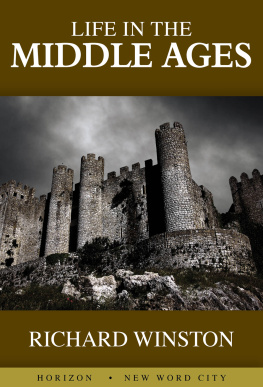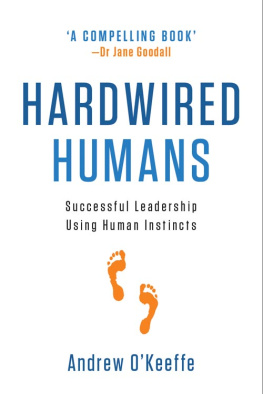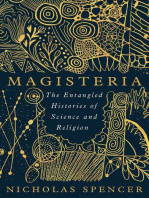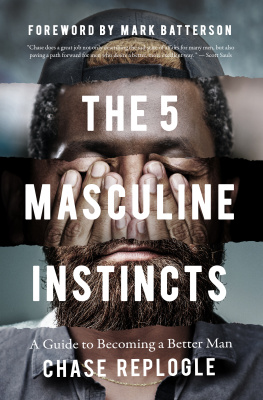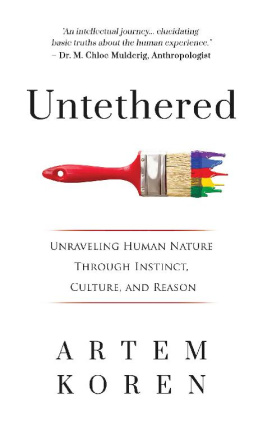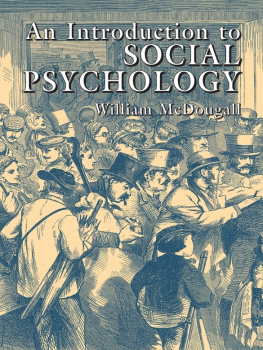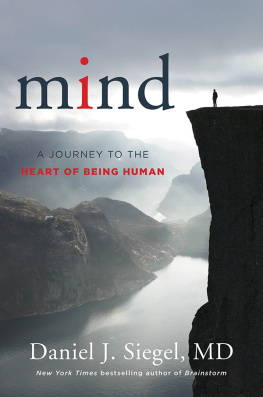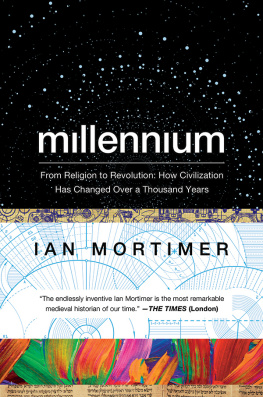Winston - Human Instinct
Here you can read online Winston - Human Instinct full text of the book (entire story) in english for free. Download pdf and epub, get meaning, cover and reviews about this ebook. City: London, year: 2008, publisher: Bantam Books Ltd, [distributor] Transworld Publishers Ltd, genre: Religion. Description of the work, (preface) as well as reviews are available. Best literature library LitArk.com created for fans of good reading and offers a wide selection of genres:
Romance novel
Science fiction
Adventure
Detective
Science
History
Home and family
Prose
Art
Politics
Computer
Non-fiction
Religion
Business
Children
Humor
Choose a favorite category and find really read worthwhile books. Enjoy immersion in the world of imagination, feel the emotions of the characters or learn something new for yourself, make an fascinating discovery.
- Book:Human Instinct
- Author:
- Publisher:Bantam Books Ltd, [distributor] Transworld Publishers Ltd
- Genre:
- Year:2008
- City:London
- Rating:5 / 5
- Favourites:Add to favourites
- Your mark:
- 100
- 1
- 2
- 3
- 4
- 5
Human Instinct: summary, description and annotation
We offer to read an annotation, description, summary or preface (depends on what the author of the book "Human Instinct" wrote himself). If you haven't found the necessary information about the book — write in the comments, we will try to find it.
Human Instinct — read online for free the complete book (whole text) full work
Below is the text of the book, divided by pages. System saving the place of the last page read, allows you to conveniently read the book "Human Instinct" online for free, without having to search again every time where you left off. Put a bookmark, and you can go to the page where you finished reading at any time.
Font size:
Interval:
Bookmark:
Robert Winston is one of the countrys best-known scientists. As Emeritus Professor of Fertility Studies at Imperial College, London, and an active researcher in reproductive physiology, he has made advances in fertility medicine and is a leading voice in the debate on embryo research and genetic engineering. His television series, including Your Life in Their Hands, Making Babies, TheHuman Body, Child of Our Time, Human Instinct, Human Mind and The Story of God, have made him a household name across Britain. He became a life peer in 1995.
From caveman to modern man
Few people doubt that humans are descended from the apes; fewer still consider, let alone accept, the psychological implications. But in truth, man not only looks, moves and breathes like an ape, he also thinks like one.
Sexual drive, survival, competition, aggression all of our impulses are driven by our human instincts. They explain why a happily married man will fantasize about the pretty, slim, young woman who is sitting across from him in the tube. Why thousands of people spend their week entirely focused on whether their team will win their next crucial match.
But how well do our instincts equip us for the twenty-first century? Do they help or hinder us as we deal with large anonymous cities, stressful careers, relationships and the battle of the sexes? In this fascinating book, Robert Winston takes us on a journey deep into the human mind. Along the way he takes a very personal look at the relationship between science and religion and explores those very instincts that make us human.
Published with the permission of the BBC
When I first started on the BBC 1 project Human Instinct I had only the most superficial interest in the subject, and matching expertise. Over subsequent months I have become so gripped by the notion that we are all trapped inside what is essentially a Stone Age mind that my interest at least has improved enormously. Fascination aside, this book has been written within the extreme pressures of a full diary and a varied employment as academic researcher, clinician, part-time politician and science film contributor all, sadly, done less well than I would like. Whilst the deficiencies in this book are wholly mine, I have leant heavily on a number of people without whom this manuscript could not have been completed.
Foremost, I owe a great debt to Leo Singer. We first met and worked together when I was writing the book Superhuman. The remarkable intelligence, insight and lively interest he showed then have been surpassed by his input into this manuscript. I could not have completed it without his skills in researching and his excellent ability at distilling and editing; it has been the greatest pleasure to work with him.
I first met my friend Alison Dillon when working on the BBC series The Human Body. Her intelligence and scientific understanding were incredibly valuable then. Her ability to express complex issues in plain English, together with her broad science background, were extraordinarily helpful with both the style and content of this book.
The later chapters, and particularly the last one, concerning altruism and the nature of morality, cover a difficult and daunting area. I am indebted to Michael Pollak, whose philosophical input was invaluable and who suggested a number of rational drafting changes, and to discussions with Raphael Zarum, Robert Rabinowitz, Joanne Winston and Clive Freedman, who pointed me in useful directions. Both Lira and Joel Winston read the whole manuscript and made many valuable suggestions and improvements.
My own scientist colleagues have, as usual, been a tower of strength, warmth and support and have tolerated my distraction while working on this project. Firstly, I am deeply grateful to David Edwards, Chairman of my division at Imperial College, who is so supportive of the notion of science communication and who allowed me a mini-sabbatical. Particular thanks go to Kate Hardy, Debbie Taylor, Carol Redhead and Delyth Morgan, who have been the most wonderful and encouraging scientific collaborators, and for the friendship of Charlie Waters, who helped me with the drafting of the genome programme Threads of Life which provided some background to this book, and for shared insights into the nature of human instinct. I thank Ray Owen for drawing my attention to material on instinct and race.
One of the greatest privileges in my hobby as a television presenter is to work in close collaboration with some of the most talented and creative production teams. My special gratitude goes to Phil Dolling and Jessica Cecil, who helped with much of the background material for this book and who made many useful suggestions about the manuscript. I must record my warmest fond admiration to three talented producers: Nastasha Bondy, who produced the programmes on survival and sex; Nigel Patterson, the programme on competition; Sam Starbuck, the last programme on altruism and morality. They have been an extraordinarily stimulating team with whom to work and I hope we meet again for other projects in the future. The research for the TV series, which provided much material for this book, was so competently done by Rebecca Chicot, helped by Dan Bays, Stefanie Kern, Laura Riley and our assistant producer, Nicola Cook. Thanks too to Mark Hedgecoe, producer on Walking with Cavemen, and my good friend Richard Dale (as usual a tower of strength); the many discussions we shared in the area of hominid development were engaging and valuable.
Maggie Pearlstine, my agent, and John Oates in her office have proved to be the usual enthusiastic and encouraging team. Without them this book would not have been started, let alone finished, and they have always been available for advice and support. My publishers, Bantam Press, have been wonderful flexible with tight deadlines and highly encouraging. Particular thanks to Sally Gaminara for her amazing backing and unstinting commitment to the project, and to Daniel Balado for his copy-editing.
Lastly, as always, my thanks to Lira, for her tolerance, support and wisdom and love.
The photograph of the male Argentine Lake Duck is reproduced with the kind permission of Kevin G. McCracken and first appeared in Nature, vol 413, 13 September 2001.
Christopher Badcock, Evolutionary Psychology: A Critical Introduction, Polity Press (2000)
Jerome Barkow, Leda Cosmides, John Tooby (eds), The Adapted Mind: Evolutionary Psychology and the Generation of Culture, Oxford University Press (1992). Includes Daly & Wilsons The Man Who Mistook His Wife for a Chattel
Louise Barrett, Robin Dunbar & John Lycett, Human Evolutionary Psychology, Palgrave (2002)
Andrew Brown, The Darwin Wars, Simon & Schuster (1999)
David M. Buss, The Evolution of Desire, Basic Books (1994)
Charles Darwin, The Origin of Species, Penguin Books (1982)
Richard Dawkins, The Selfish Gene, new edition Oxford University Press (1989), originally 1976
Daniel C. Dennett, Darwins Dangerous Idea: Evolution and the Meanings of Life
Font size:
Interval:
Bookmark:
Similar books «Human Instinct»
Look at similar books to Human Instinct. We have selected literature similar in name and meaning in the hope of providing readers with more options to find new, interesting, not yet read works.
Discussion, reviews of the book Human Instinct and just readers' own opinions. Leave your comments, write what you think about the work, its meaning or the main characters. Specify what exactly you liked and what you didn't like, and why you think so.

